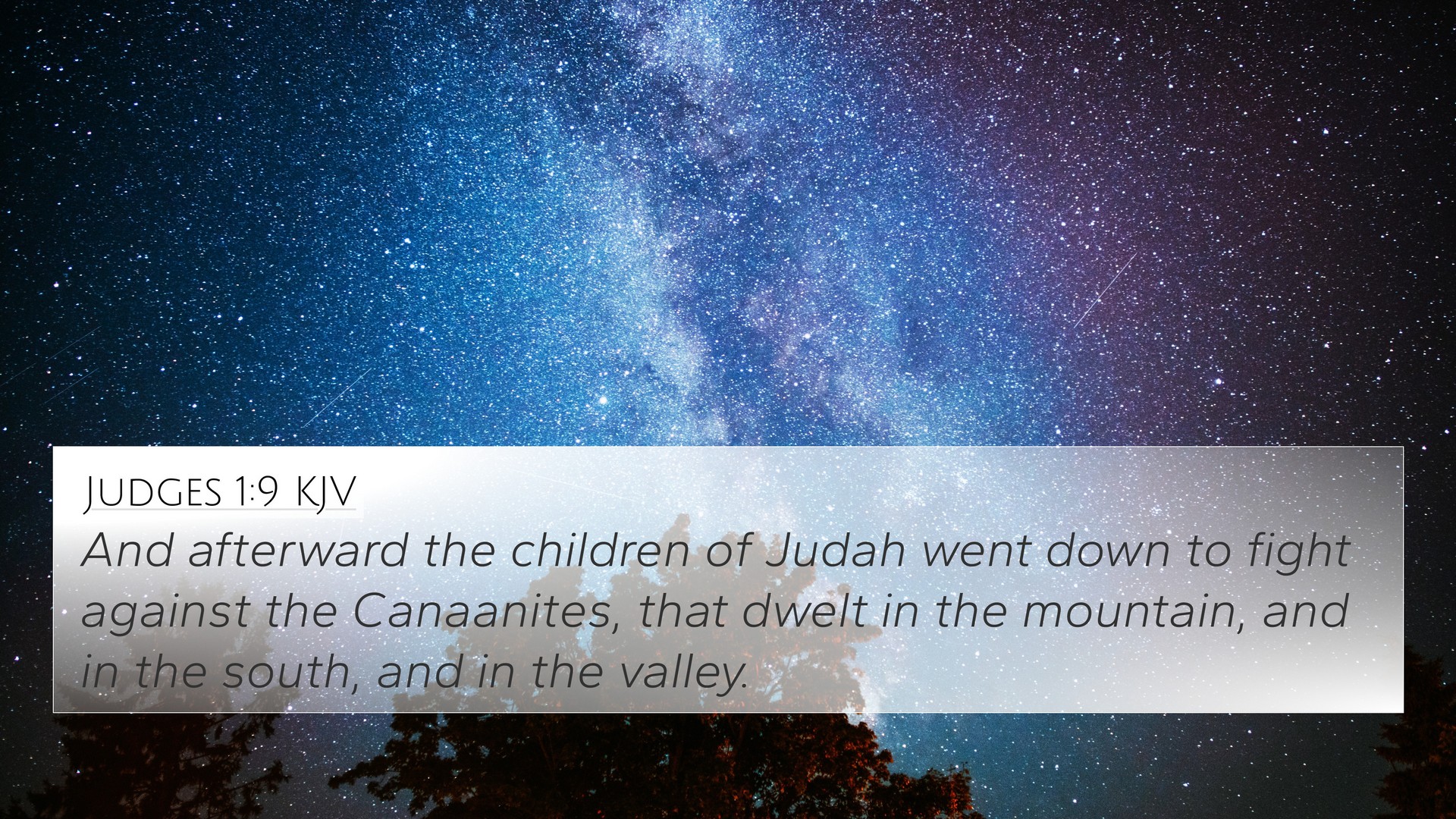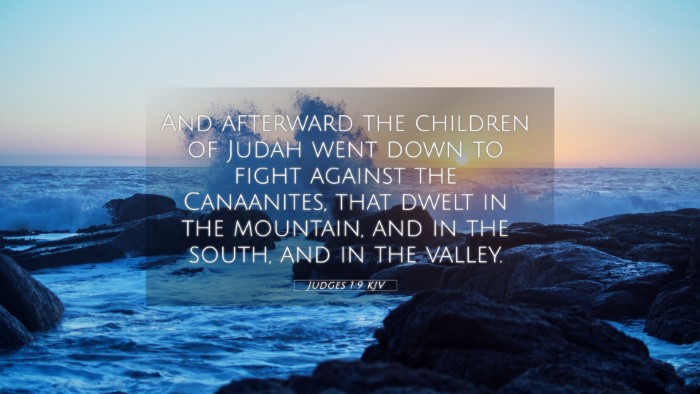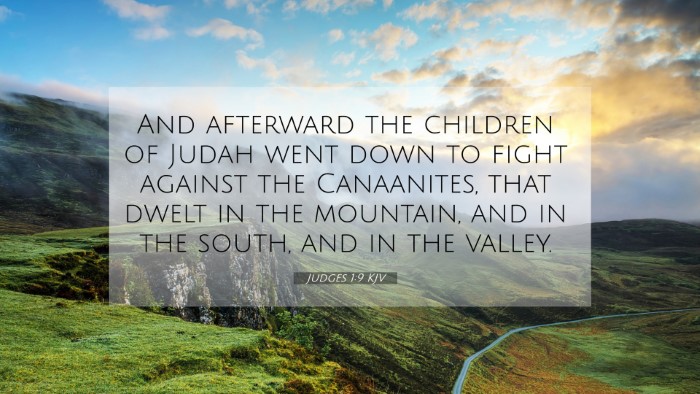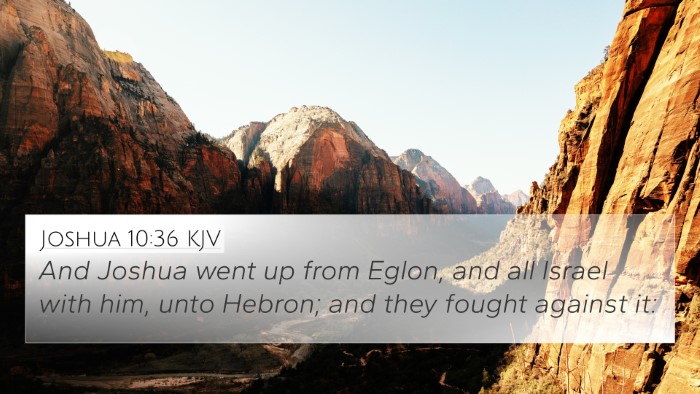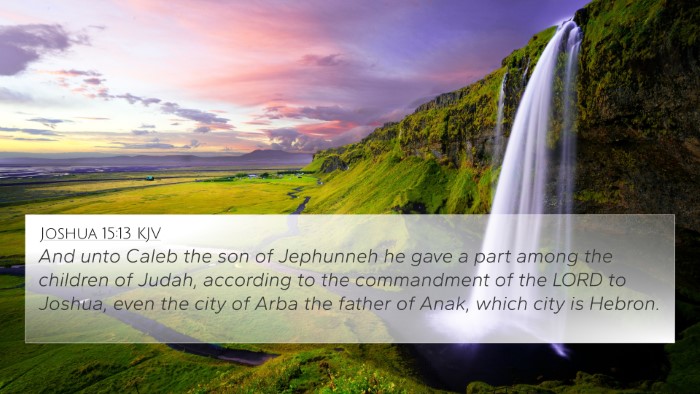Understanding Judges 1:9
The verse Judges 1:9 states, "And afterward the children of Judah went down to fight against the Canaanites, that dwelt in the mountains, and in the south, and in the valley." This passage is rich in historical meaning and theological insight, reflecting on the ventures of the tribe of Judah as they engaged with the Canaanites after the death of Joshua. Below, we combine insights from esteemed public domain commentaries, providing a comprehensive interpretation.
Interpretative Overview
This verse marks a crucial moment in the narrative of the Israelites as they establish themselves in the Promised Land. The journey of Judah illustrates themes of courage, leadership, and divine assistance.
Matthew Henry's Commentary Insight
According to Matthew Henry, this verse emphasizes the proactive measures taken by the tribe of Judah, depicting their spirit of conquest and determination. Henry points out that the tribe's victory is attributed to their faith in God, suggesting that reliance on divine strength is essential when facing formidable challenges. He highlights the significant geographical mentions — mountains, south, and valley — which underscore the strategic approach Judah took in their military endeavors.
Albert Barnes' Perspective
Albert Barnes notes that the actions of Judah are illustrative of the broader struggle of Israel against the Canaanite influences. His commentary focuses on how Judah's initiative can inspire believers today to engage actively in spiritual battles against sin and adversity. Barnes also mentions that the geographical context serves as a reminder of the diverse challenges faced by God’s people, as they contend not only with external foes but also internal struggles.
Adam Clarke's Insights
Adam Clarke provides historical details that enrich our understanding of Judah’s motives. He remarks upon the importance of tribal identity and the collective responsibility to reclaim the land promised to them by God. Clarke observes that this initial act of battlegrounds is a representation of both physical and spiritual warfare, connecting to the overarching narrative of Israel's covenant relationship with God.
Thematic Connections
Judges 1:9 can be cross-referenced with several other scriptures that enhance its understanding and provide deeper insights into the themes of faith, courage, and God’s providence:
- Joshua 15:14 - Explains how Caleb drove out the Anakim from Hebron, paralleling the aggressive national character.
- Hebrews 11:32-34 - Discusses faith heroes, correlating with Judah’s brave actions in confronting the Canaanites.
- Deuteronomy 7:1-2 - God’s command to Israel regarding the Canaanites acts as a backdrop to their military endeavors.
- 1 Corinthians 15:57 - Reminds believers of victory through Christ, paralleling Judah's reliance on divine support.
- 2 Samuel 5:6-8 - Links Judah’s historical battles with later events in David's reign.
- Romans 8:37 - Affirms believers as more than conquerors through Christ, echoing Judah’s victory narrative.
- Revelation 19:11-14 - Reflects final victory battles that resonate with Judah’s conquests and faith.
Cross-Referencing Biblical Texts
Using tools for Bible cross-referencing can illuminate the connections between various verses, leading to a better grasp of Biblical themes.
With respect to Judges 1:9, it serves as a foothold for exploring themes related to:
- Faith-driven action in adversity.
- The importance of unity among God’s people.
- Historical claims to the Promised Land.
- Divine guidance in battles.
Engaging with Scripture
Understanding the inter-Biblical dialogue and connections between scripture verses prompts meaningful engagement with the Scripture. Exploring this passage could involve:
- Identifying connections between the Old and New Testament, emphasizing how God's promises endure.
- Using a Bible concordance to find thematic connections and parallels throughout scripture.
- Conducting a comparative Bible verse analysis of military conquests across different tribes.
Conclusion
Judges 1:9 opens a window into understanding the struggles of faith and conquest faced by the Israelites. By utilizing cross-referencing Bible study methods, readers can deepen their biblical understanding and enrich their spiritual journeys. Each battle of Judah against the Canaanites reflects modern believers’ challenges in seeking victory through faith in Christ.
